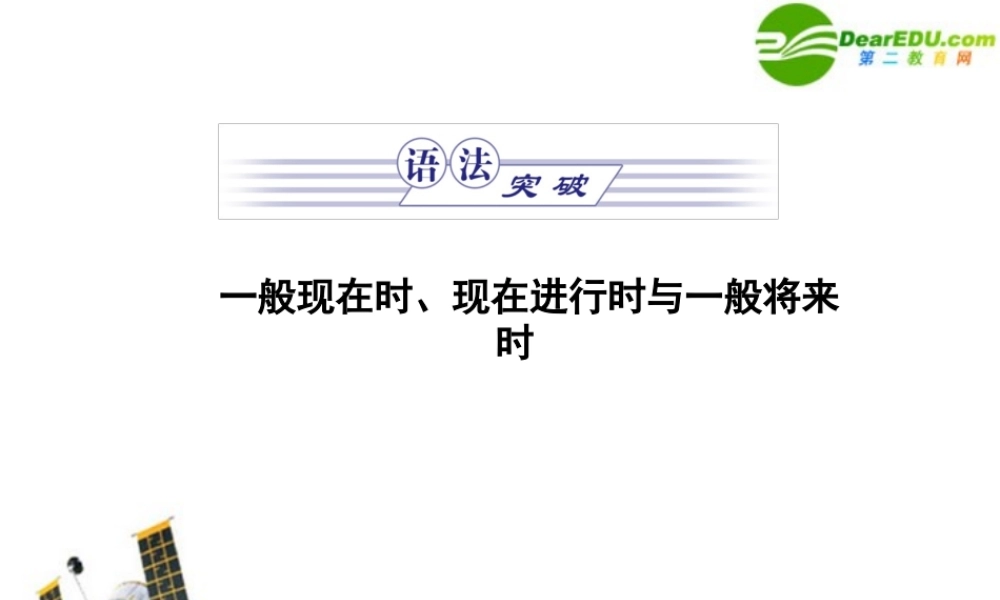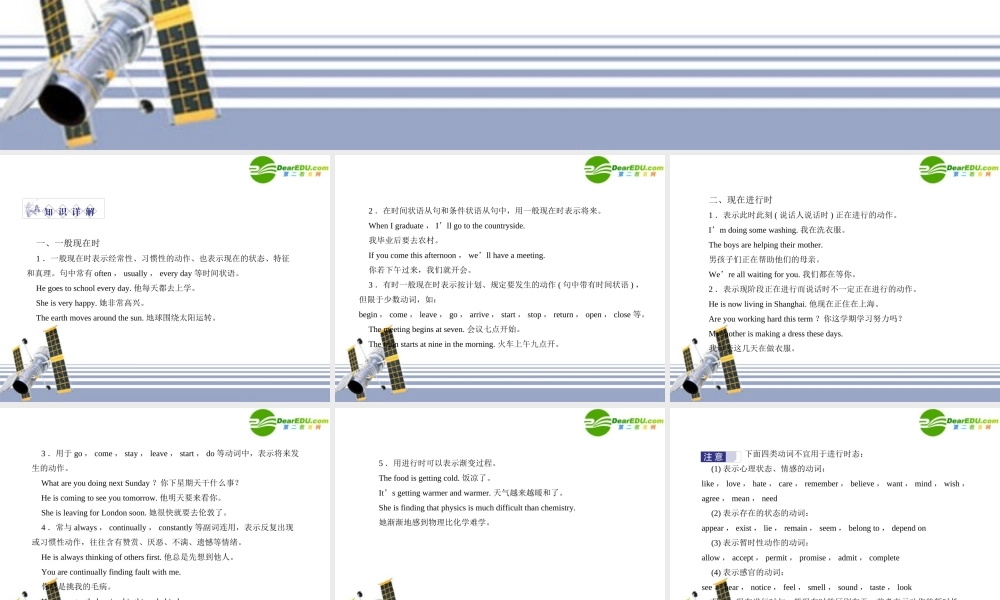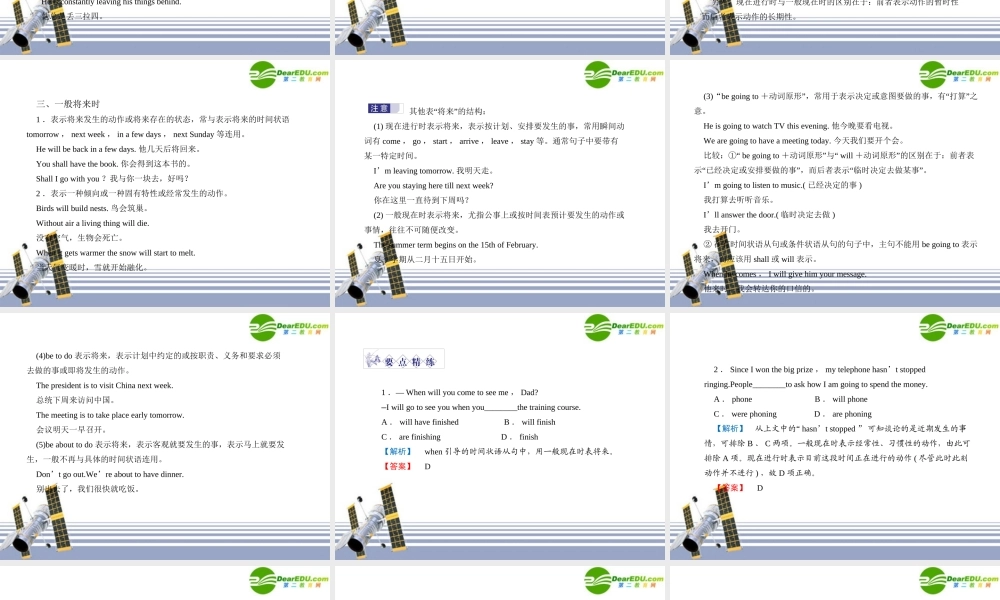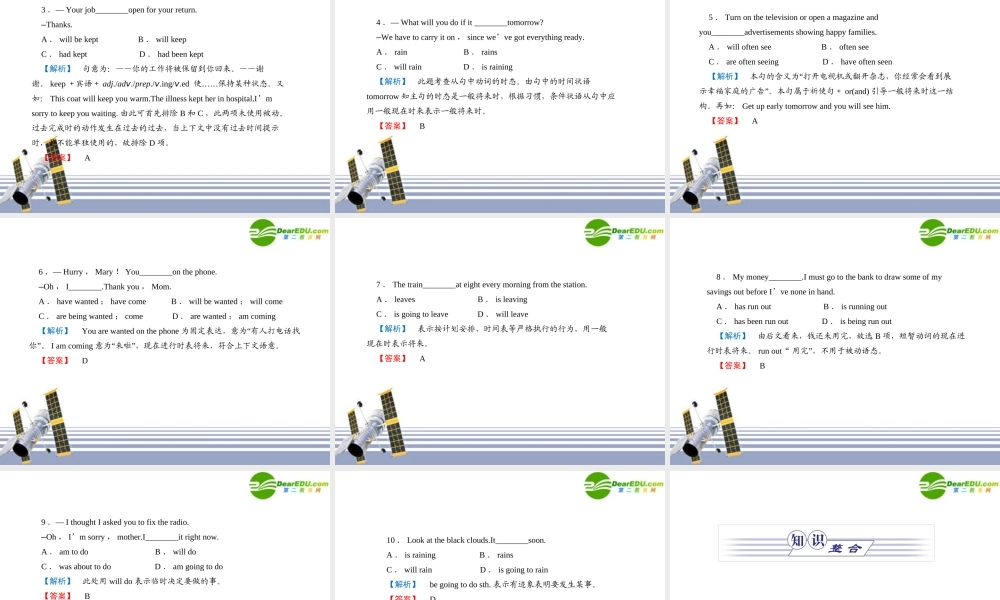一般现在时、现在进行时与一般将来时一、一般现在时1 .一般现在时表示经常性、习惯性的动作、也表示现在的状态、特征和真理。句中常有 often , usually , every day 等时间状语。He goes to school every day. 他每天都去上学。She is very happy. 她非常高兴。The earth moves around the sun. 地球围绕太阳运转。2 .在时间状语从句和条件状语从句中,用一般现在时表示将来。When I graduate , I’ll go to the countryside.我毕业后要去农村。If you come this afternoon , we’ll have a meeting.你若下午过来,我们就开会。3 .有时一般现在时表示按计划、规定要发生的动作 ( 句中带有时间状语 ) ,但限于少数动词,如:begin , come , leave , go , arrive , start , stop , return , open , close 等。The meeting begins at seven. 会议七点开始。The train starts at nine in the morning. 火车上午九点开。二、现在进行时1 .表示此时此刻 ( 说话人说话时 ) 正在进行的动作。I’m doing some washing. 我在洗衣服。The boys are helping their mother.男孩子们正在帮助他们的母亲。We’re all waiting for you. 我们都在等你。2 .表示现阶段正在进行而说话时不一定正在进行的动作。He is now living in Shanghai. 他现在正住在上海。Are you working hard this term ?你这学期学习努力吗?My mother is making a dress these days.我母亲这几天在做衣服。3 .用于 go , come , stay , leave , start , do 等动词中,表示将来发生的动作。What are you doing next Sunday ?你下星期天干什么事?He is coming to see you tomorrow. 他明天要来看你。She is leaving for London soon. 她很快就要去伦敦了。4 .常与 always , continually , constantly 等副词连用,表示反复出现或习惯性动作,往往含有赞赏、厌恶、不满、遗憾等情绪。He is always thinking of others first. 他总是先想到他人。You are continually finding fault with me.你总是挑我的毛病。He is constantly leaving his things behind.他总是丢三拉四。5 .用进行时可以表示渐变过程。The food is getting cold. 饭凉了。It’s getting warmer a...




